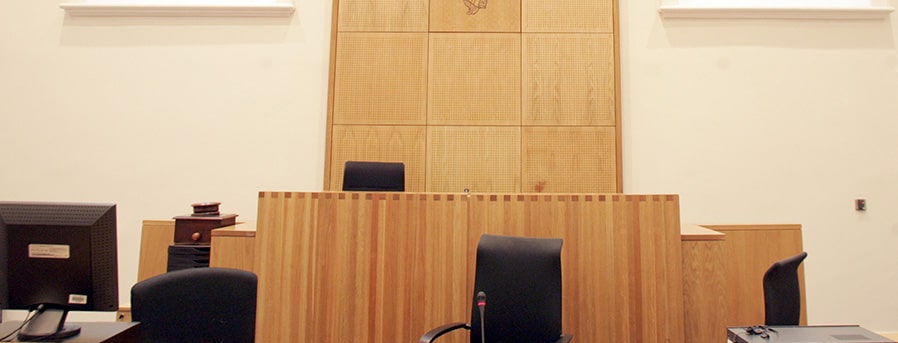
Judges ‘fully support’ courts modernisation
The presidents of the five courts in the Irish justice system have jointly published a strategic plan for the next three years.
The document contains an overarching framework for all jurisdictions, along with individual strategies that set out key objectives and actions specific to each of the courts.
The judges say that the Irish Courts Strategic Plan 2024 –2027 is in line with the Courts Service’s modernisation programme and development plan.
They say that they “fully support” the steps being taken by the Courts Service to modernise its facilities and work practices.
The plan includes a mission statement that sets out the courts’ goal of providing fair and impartial justice, while “striving to meet changing national and local needs”. It adds that the courts should be “accessible to and trusted by all”.
District Court venues review
The District Court strategy sets out measures to increase efficiency and avoid delays – including the digitisation of some court processes.
The court also aims to provide trial dates for contested cases within 12 weeks of cases being called on for hearing or being declared as ready for hearing.
It also pledges to work with the Courts Service to ensure that court buildings and facilities meet the needs of litigants and users.
The plan says that the number of District Court judges should be reviewed at least every three years, adding that districts and venues should also be reviewed to ensure that the court’s structure is in line with modern needs.
Circuit Court warning
The Circuit Court section of the plan warns that applications under the Assisted Decision-Making (Capacity) Act 2015 (ADMC) will increase “dramatically” in the near future.
Referring to a sharp increase in criminal cases in recent years, the plan says that “at least” one extra court is needed in Dublin’s Criminal Courts of Justice to deal with Circuit Court criminal trials and avoid backlogs.
The plan says that it will continue to engage with the Courts Service on the possibility of opening up more venues for Circuit Court business.
It will also look at the possibility of “an increasing role” for county registrars, particularly in ADMC and insolvency applications.
The Circuit Court pledges to consider remote hearings where appropriate, and calls for legislative change to allow judges sitting outside normal court hours to sit remotely to deal with urgent criminal matters.
High Court protocol pledge
The main objective set out in the High Court plan is to maximise the impact of additional judges on waiting times and the delivery of judgments.
The plan commits to implementing a protocol in the Central Criminal Court that provides for the speedier determination of rape and murder cases involving victims and defendants who are under 18.
It includes a pledge to review a pilot project on the allocation of judges during the courts’ ‘long vacation’, and to support the increased use of technology for judges and court users.
The High Court plan also says that “monitor closely” the caseloads of specialist courts, such as the Planning and Environment Court, “and seek additional resources where necessary”.
The plan also sets out measures to maintain and improve judicial training.
Timelines for appeals
The Court of Appeal plan sets out timelines for the hearing of appeals, aiming to hear civil appeals within five to eight months of filing, and criminal appeals within three months.
It also signals possible changes in court rules to expand the types of appeals that can be heard by one judge sitting alone.
The Supreme Court says that it plans to restart hearings outside Dublin, and to pilot the broadcasting of proceedings.
It will also look at whether technology can facilitate more remote attendance, particularly in case-management hearings.
The Supreme Court also plans to carry out a review of its practice directions, protocols, and guidance notes, in consultation with court users.